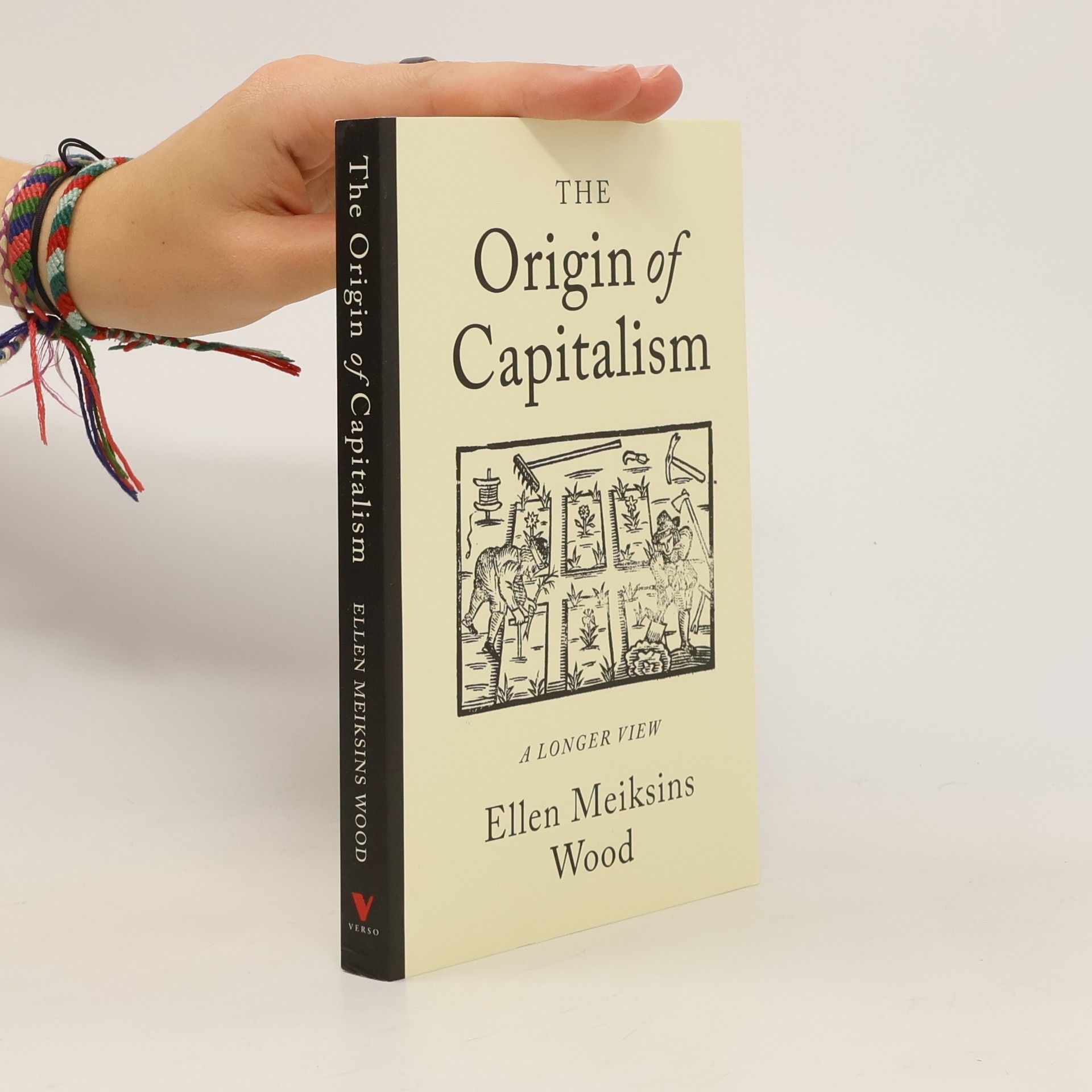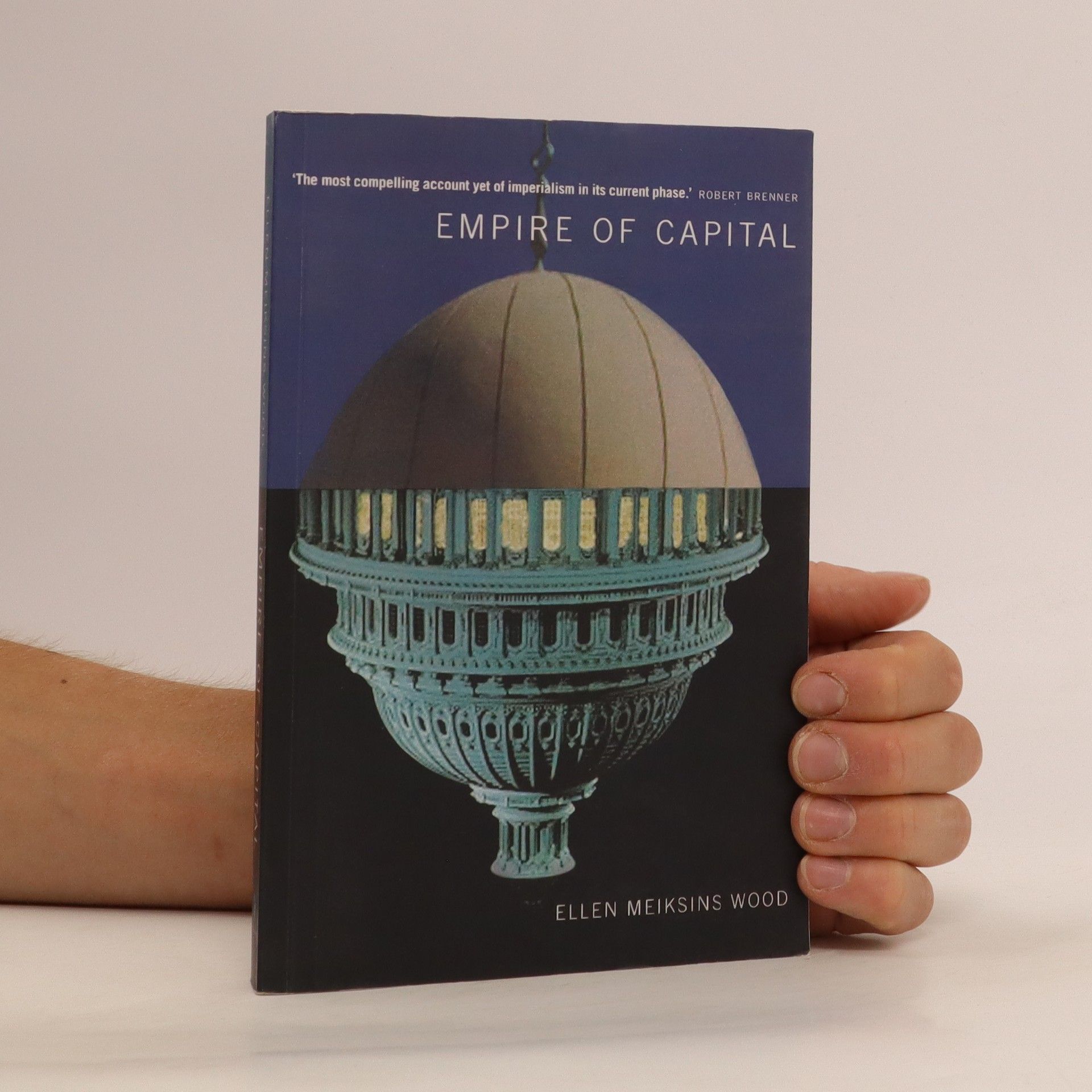A sweeping and nuanced materialist history of Western political thought
Ellen Meiksins Wood Book order (chronological)
Ellen Meiksins Wood was an American-Canadian Marxist historian and scholar. Alongside Robert Brenner, she articulated the foundations of Political Marxism, a strand of Marxist theory that places history at the core of its analysis. Her work provoked a turn away from structuralisms and teleology towards historical specificity as a contested process and lived praxis. Wood's writings, sometimes in collaboration with her husband Neal Wood, emphasized historical contingency and the struggle inherent in social transformation, offering a deep engagement with the dynamics of history.






The Origin of Capitalism
- 213 pages
- 8 hours of reading
The Origin of Capitalism was one of those 'Aha!' moments. Wood was an extraordinarily rigorous and imaginative thinker, someone who breathed life into Marxist political theory and made it speak-not to just to me but to many others-at multiple levels: historical, theoretical, political. -Corey Robin, Jacobin The writing is so supple and accessible, and the argument so persuasive, it's like watching a cloudy mixture of ideas being turned into a clear solution. -Adrienne Rich This extremely valuable book offers an insightful tour of the historical debates surrounding the transition from feudalism to capitalism ... a must-read for anyone with even the remotest interest in the origins of capitalism, or economic thought in general, from undergraduates through professionals. - Choice Brilliant book ... Into the central thread of her argument, Ellen Meiksins Wood has woven a wonderfully rich texture of comment on the arguments and debates that preceded her ... not just a valuable new interpretation of an old history, it carries important lessons for our own times. - Spokesman
Liberty and Property: A Social History of Western Political Thought from the Renaissance to Enlightenment
- 325 pages
- 12 hours of reading
The formation of the modern state, the rise of capitalism, the Renaissance and Reformation, the scientific revolution and the Age of Enlightenment have all been attributed to the “early modern” period. Nearly everything about its history remains controversial, but one thing is certain: it left a rich and provocative legacy of political ideas unmatched in Western history. The concepts of liberty, equality, property, human rights and revolution born in those turbulent centuries continue to shape, and to limit, political discourse today. Assessing the work and background of figures such as Machiavelli, Luther, Calvin, Spinoza, the Levellers, Hobbes, Locke and Rousseau, Ellen Wood vividly explores the ideas of the canonical thinkers, not as philosophical abstractions but as passionately engaged responses to the social conflicts of their day.
Citizens to Lords: A Social History of Western Political Thought from Antiquity to the Middle Ages
- 256 pages
- 9 hours of reading
This book presents a groundbreaking perspective on the evolution of political theory, challenging traditional narratives and interpretations. It delves into the influences that have shaped political thought throughout history, examining key figures and movements that have redefined the landscape of governance and power. By integrating a diverse range of sources and methodologies, it offers fresh insights and connections that illuminate the complexities of political ideologies and their impact on contemporary society.
Wenige Fragen der Geschichte haben so viele aktuelle politische Implikationen wie die scheinbar so einfache: Wie ist der Kapitalismus entstanden? In dieser erhellenden Arbeit widerlegt Ellen Meiksins Wood die meisten vorhandenen Darstellungen über den Ursprung des Kapitalismus, denen es nicht gelingt, die spezifischen Eigenschaften des Kapitalismus als Gesellschaftssystem zu erkennen, und die ihn stattdessen als Höhepunkt einer natürlichen menschlichen Neigung zum Handel erscheinen lassen. Aber nur mit einem richtigen Verständnis der Anfänge des Kapitalismus, so Wood, können wir uns die Möglichkeit seines Endes vorstellen. Ellen Meiksins Wood beginnt ihre Erforschung der Ursprünge des Kapitalismus mit einer Untersuchung der klassischen Denker von Adam Smith bis hin zu Max Weber, um dann die großen marxistischen Debatten zwischen Autoren wie Paul Sweezy, Maurice Dobb, Robert Brenner, Perry Anderson und E. P. Thompson zu erkunden. In ihrer eigenen Darstellung der agrarischen Ursprünge des Kapitalismus stellt sie schließlich die Verbindung des Kapitalismus mit Städten, die Gleichsetzung von »kapitalistisch« mit »bürgerlich« und die von diesen Annahmen abgeleiteten Konzeptionen von Moderne und Postmoderne infrage.
Empire of capital
- 240 pages
- 9 hours of reading
What does imperialism mean in the absence of colonial conquest and imperial rule?
This work offers a contemporary reinterpretation of Marxism, arguing that it remains a powerful lens for critically analyzing capitalism. It delves into the relevance of Marxist theory in understanding modern economic structures and social dynamics, highlighting its strengths in addressing contemporary issues. The author presents a compelling case for why Marxism continues to be a vital framework for critique and discussion in today's capitalist society.
The Retreat from Class
- 160 pages
- 6 hours of reading
A survey of influential trends in contemporary Marxist theory which examines the relationship between class, politics and ideology. The introduction discusses the relevance of the text in a post-Soviet world and argues for a re-examination of class politics.
